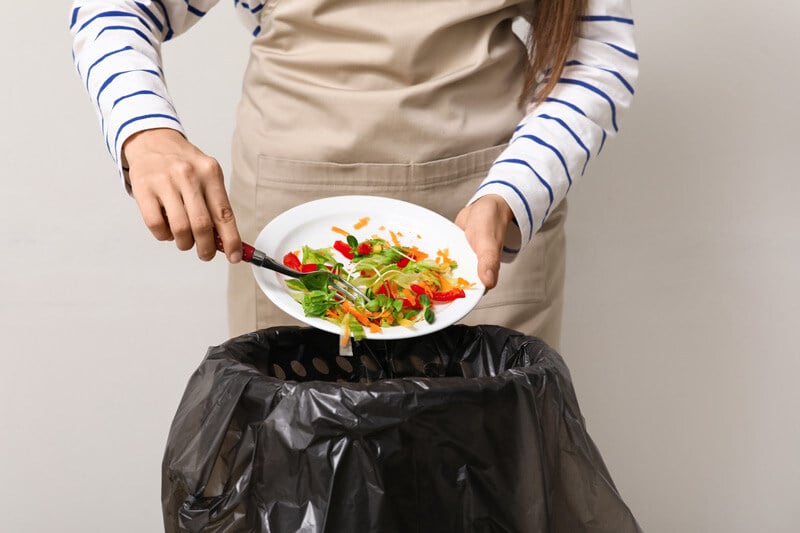Food waste is one of the most pressing challenges of our times, with significant implications for the environment, economy, and society. A recent study by the Waste Watcher International Observatory from the University of Bologna analysed the issue in G7 countries, uncovering surprising data and promising strategies for tackling this global issue.
Food waste in numbers

The data vary significantly across the G7 countries. Canada leads the way with 1144.1 g of food wasted per person per week, followed by the USA (859.4 g) and Italy (683.3 g). At the opposite end of the table, we find Japan with only 362 g per week, followed by France (459.9 g) and Germany (512.9 g).
International best practice
Each country has developed its own distinct approaches to combating food waste.
Japan stands out for its cultural concept of Mottainai, a word which expresses regret for waste and promotes efficient use of resources. France introduced the pioneering Garot Law, which prevents supermarkets from destroying unsold food. Germany has seen a considerable reduction of 43% in food waste thanks to efficient household organisation.
The situation in Italy

The picture in Italy is complicated: despite the fact that 86% of Italians pay particular attention to preparing meals, household food waste has grown by 45.6% in the last year, reaching 683.3 g per week. However, virtuous practices can also be seen: 59% of Italians prioritise consuming food that is close to its expiry date and 55% use the freezer to extend the shelf life of food.

Prevention strategies
The research identified a number of key strategies for reducing household food waste in an effective manner. Careful organisation of food cupboards, fridges, and freezers emerge as crucial practices: keeping these spaces well ordered so you can always see what is available and when it goes out of date helps to prevent double purchases or forgetting about things. In Germany, where 83% of families keep well organised food cupboards, there has been a significant reduction in food waste.
Vacuum food storage is recognised as something which plays an increasingly important role, a method which is rapidly gaining popularity in homes thanks to its effectiveness in extending the shelf life of food and preserving its nutritional qualities. This method not only means that both fresh and cooked food can be kept for longer, it also provides significant financial savings, reducing the frequency of purchases and allowing users to take advantage of offers thanks to better food storage.

The regular use of a shopping list is an essential habit. This simple routine, used by 82% of the most virtuous consumers, helps people to avoid impulse purchases and stick to the plan when shopping. Shopping lists are even more effective when combined with a weekly meal plan, a technique that helps people to optimise their shopping and make the best use of ingredients.
Careful use of leftovers is crucial: in the most virtuous countries, such as France, 88% of families regularly store and reuse leftover food. This behaviour not only reduces food waste, it also encourages creativity in the kitchen, transforming potential waste into new recipes.
Lastly, dietary education in schools is a crucial long-term strategy. As shown from experience in Canada, where 71% of people interviewed considered it to be a priority, raising awareness among younger generations of the issues around food waste and sustainability is crucial for creating a more informed and responsible society.
Conclusions
Reducing food waste requires an integrated approach that combines effective public policies, commitment from companies, and informed actions by consumers. Experience in G7 countries shows that significant results can be achieved when innovative legislation, cultural change, and virtuous household practices are combined. The challenge for the future will be to convert the growing awareness into concrete actions, to promote a more sustainable and efficient food system.

It's your turn, leave your comment!
Get the latest from the Laica blog